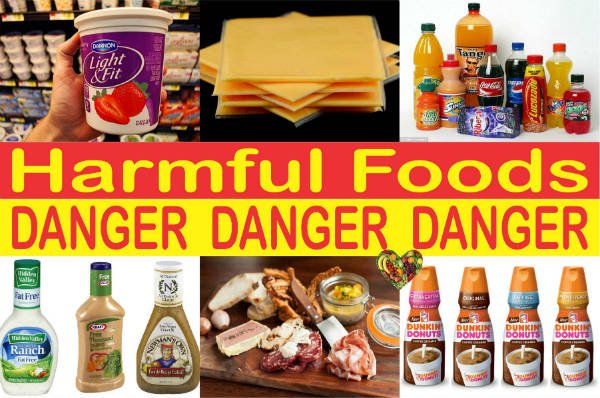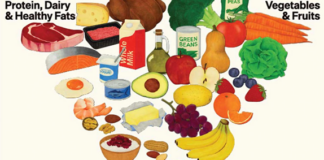
Many of you know about my struggle with recurrent miscarriage. Though we are so excited about the prospect of growing our family through adoption, I’m still concerned that something is wrong in my body and the doctors just can’t seem to figure it out. This year I’m taking my health into my own hands and instead of looking to the medical profession who up to this point have completely failed me, I’m looking inside my own body for the answers. This year I’m seeking to get my body back to to a whole, healthy, and healed place. One way I’m doing this is by eliminating BPA from my diet. You can also learn about the Real Food diet and how to cut out processed foods by reading this post.
What is BPA you ask? Bisphenol a (BPA) is a synthetic estrogen used to harden polycarbonate plastics and epoxy resin. Yes, you read that right. SYNTHETIC ESTROGEN. An estimated 6 billion pounds of BPA are produced globally annually, generating about $6 billion in sales. It is fabricated into thousands of products made of hard, clear polycarbonate plastics and tough epoxy resins, including safety equipment, eyeglasses, computer and cell phone casings, water and beverage bottles, DENTAL FILLINGS, and epoxy paint and coatings. Despite research that has proven this chemical to be hazardous it is still approved for use in a shocking amount of products. What’s so bad about it? Trace BPA exposure has been shown to disrupt the endocrine system and trigger a wide variety of disorders, including chromosomal and reproductive system abnormalities, impaired brain and neurological functions, cancer, cardiovascular system damage, adult-onset diabetes, early puberty, obesity and resistance to chemotherapy. The most disgusting fact of all is that the highest levels of BPA have been found in baby bottles, and liquid infant formula. Seriously. (Source: EWG)
When I first started researching this and found out that women who have recurrent miscarriages are found to have much higher traces of BPA in their systems I was horrified. I’ve been systematically poisoning myself and I didn’t even know it.When I was pregnant I probably ate 2 cans of Campbell’s soup and drank tons of bottled water. I also have fillings in my mouth that are composed of 50% BPA. There’s nothing I can do about that now (hopefully most of the harmful chemical has dissipated and been flushed out by my body by now). I use so many plastics and canned goods and never could have imagined in my wildest dreams that it could be contributing to my miscarriages. So its OUT WITH BPA.
There is some good news folks. BPA has a VERY short half-life. That means it can be flushed out of your system in less than 24 hours. Just a few days of going BPA free can get you completely back to normal, you just have to be vigilant. Here’s how to do it.
BPA is Everywhere.
It’s in everything we touch, everything we eat, everything we buy: it’s hidden in grocery store receipts and beauty products, in coffee cups and soda cans, in the very food and water we need to live. So, what’s the big deal? We’ve survived so far. Or… have we? Cancer and autoimmune disease rates continue to rise steadily. In 2009, EWG tests found estrogen-disrupting levels of BPA in 9 of 10 umbilical cord blood samples. We all have BPA in our bodies. There’s nothing we can do about it. Right?
You can Remove BPA from Your Body.
And you can do it in less than a week. BPA is metabolized by the body very quickly. A recent study found that participants were able to reduce the levels of BPA in their body by 65% in three days just by avoiding packaged foods¹. By eliminating additional hidden sources of BPA in your environment you can increase that number, as well as reducing many other toxic chemicals that are found in plastics like phthalates, and polyethylene. Here’s how.
 1. Just Say No to BPA-loaded Receipts
1. Just Say No to BPA-loaded Receipts
Did you know that some receipts contain 250 to 1,000 times the amount of BPA typically found in a can of food?² If that isn’t scary enough, BPA transfers readily from the receipt to skin and cannot be washed off. Different types of receipts contain varying levels of BPA. If you aren’t sure whether or not a merchant uses BPA in their receipts, either ask directly or let them know early in the transaction that you will not need your receipt. Gas station receipts are particularly notorious for containing huge amounts of BPA.
 2. Avoid Packaged Food
2. Avoid Packaged Food
True, you might have to give up potato chips. But, maybe that’s not such a bad thing. So, what will you possibly eat? There are many safe options available to replace the packaged staples in your kitchen. You can buy fresh bread from the bakery in paper, milk in glass bottles, bring a glass container for cheese and meat from the deli, buy cereal in bulk, get beans and grains from the bulk bin in your own cloth or paper bag. Forgo the packaged salad greens for unpackaged – use cloth or paper bags in the produce aisle.
 3. Switch to a Safe BPA-free Water Bottle
3. Switch to a Safe BPA-free Water Bottle
You know that funny taste that your plastic water bottle gets when you leave it in the sun? That’s the taste of chemicals leaching into your water. Doesn’t sound very refreshing, does it? There are many safe stainless steel and glass alternatives to plastic bottles. My favorites are those made with 100% safe glass, with stainless steel or silicone in place of a plastic top. Three great options are from Vessel, Bottles UP and Bkr. If you choose a stainless steel option, make sure to get one that is not lined with plastic. Kleen Kanteen is a safe choice. While you’re at it, skip the water cooler for fill-ups. Those big plastic jugs are loaded with BPA too. Tap is safer.
 4. Store Food in Glass
4. Store Food in Glass
Did you know that even “safe” plastics can leach toxic chemicals³ once they are washed in a dishwasher or scrubbed with detergent and a sponge? Why take the chance? Ditch those plastic tubs in place of safe all-glass alternatives. For on the go or smaller items, forgo plastic wrap and plastic sandwich bags in place of small glass containers, wax paper bags, or parchment paper.
5. Avoid Canned Foods
92% of all canned food is lined with BPA coating. Look for alternatives in glass jars (most will have BPA lined lids but overall contamination is much less) or stick to these safe BPA-free brands: Eden Foods (except tomatoes), Wild Planet tuna, Vital Choice tuna, Native Forest and Native Factor canned goods.
6. Give up Soda
Believe it or not, even aluminum soda cans are lined with BPA. If you can’t give up soda, you can always buy a brand that comes in a glass bottle.
7. Eat at Home
Most food in restaurants originates from highly packaged sources or is stored in plastic. As a result, almost all restaurant food is loaded with BPA. Eating at home and bringing your lunch to work more often will help reduce the BPA in your body.
8. Make your Own Coffee
Unless you’re lucky enough to have a local coffee shop that brews in glass, a cup of to-go coffee comes in contact with BPA during each stage of the brewing process. From the plastic bag the beans are stored in, to the hot plastic coffee maker it’s brewed in, the thermos it’s kept hot in, and the plastic – lined cup it’s served in.
For a BPA- free brew, buy beans from bulk, store in glass, and drip brew with paper filters, a stainless steel Coava filter and Chemex glass carafe, or stainless steel french press. Pour into a ceramic cup and, voila! BPA-free coffee to go.
 9. Buy Personal-care Products in Glass, Paper or Metal.
9. Buy Personal-care Products in Glass, Paper or Metal.
BPA, phthalates, and other toxic chemicals can leach into beauty products from a plastic container and absorb into your skin. Work to eventually phase out these items by replacing them with safe-packaged alternatives as they run out. If you are on a budget, most beauty products can be made from simple ingredients.
10. Replace Plastic Items with Safer Alternatives
Because BPA, phthalates and other plasticizers are not chemically bound to the plastics they’re added to, they are continuously released into our air and transferred to our skin when touched. Begin to replace plastic items in your household as you are able. Children are especially vulnerable to plastic chemical exposure. Gradually replace children’s toys and tableware with safer, non-plastic options. Even choosing natural fibers over synthetic clothing (did you know spandex is made of plastic?) can reduce the amount of plastic chemicals stored in your body.
Of course, we can never completely eliminate plastic from our lives
But, the more plastic we avoid, the less BPA in our bodies. Have I eliminated synthetic clothing? Um, no. And I do eat a bag of chips now and then. Although it can be done in 3 days, gradual changes will result in a slow and steady reduction of BPA too. It’s all about knowing how BPA gets into our bodies and cultivating an awareness of plastic so we can consider opportunities to avoid it. It’s about empowering ourselves with the knowledge to make healthy choices.
Related articles
- What Does BPA Free Mean (wanttoknowit.com)
- BPA In Baby Bottles (thezacorner.com)
- Consumers Move the Market on Toxic BPA (blogher.com)
- Karl Grossman: A Good Start at Banning BPA-Coated Receipts (huffingtonpost.com)
- Bisphenol A (BPA) Harms Human Fertility Harvard Study Concludes(truth11.com)
- Chemical Found In Many Household Plastics Could Be Playing A Role In Unwanted Weight Gain (newyork.cbslocal.com)
- BPA: A Chemical Controversy (theepochtimes.com)
- BPA contaminating our food (therealfoodchannel.com)
- More harm found from BPA in children… (environmentalcontaminants.wordpress.com)
- BPA Health Alert (adefemiwa99.wordpress.com)
Source: https://homemakerchic.com/2013/01/17/10-steps-to-remove-bpa-from-your-body-in-less-than-a-week/
Disclaimer: We at Prepare for Change (PFC) bring you information that is not offered by the mainstream news, and therefore may seem controversial. The opinions, views, statements, and/or information we present are not necessarily promoted, endorsed, espoused, or agreed to by Prepare for Change, its leadership Council, members, those who work with PFC, or those who read its content. However, they are hopefully provocative. Please use discernment! Use logical thinking, your own intuition and your own connection with Source, Spirit and Natural Laws to help you determine what is true and what is not. By sharing information and seeding dialogue, it is our goal to raise consciousness and awareness of higher truths to free us from enslavement of the matrix in this material realm.
 EN
EN FR
FR


 2. Avoid Packaged Food
2. Avoid Packaged Food



























The beverage industry’s containers are safe and pose no public health risk, including any alleged risk associated with BPA. In fact, the U.S. Food and Drug Administration (FDA), the European Food Safety Authority (EFSA) and other government agencies around the globe have found no public health risk associated with BPA in any food or beverage.
Bottom line: millions of people around the world trust us because, for generations, our industry has made products that are refreshing, convenient and, above all, safe.
Quite a nice list, although I feel typically misguided.
More importantly, have you had an HPV vaccine?
What kinds of drugs (medicine) have you loaded your body up with?
What about fluoride – have you ever done anything about eliminting and removing that from your body? Do you have amalgam fillings?
Whoever wrote this that doesn’t think this is a GOOD thing
“resistance to chemotherapy”
….you may want to reconsider if you can seriously consider their ‘opinion’ for your OWN health.
The whole nonsense about “diet and exercise” as a ‘cure-all’ is just complete BS put out by BigPharma just as the nonsense about the ‘evils of smoking’ are simply diversions away from the actual agenda of using ‘MEDICINE’ as the #1 method of population reduction (genocide of us ‘useless eaters’) and it sounds like you’ve accepted quite a good amount over the years.
Sure, getting rid of BPA isn’t a bad idea – but you’re missing the whole forest.
You can use Miron Violet glass for packaging and storage.
http://www.miron-glas.com
https://www.meditecheurope.co.uk/my-habitat/miron-violet-glass.html